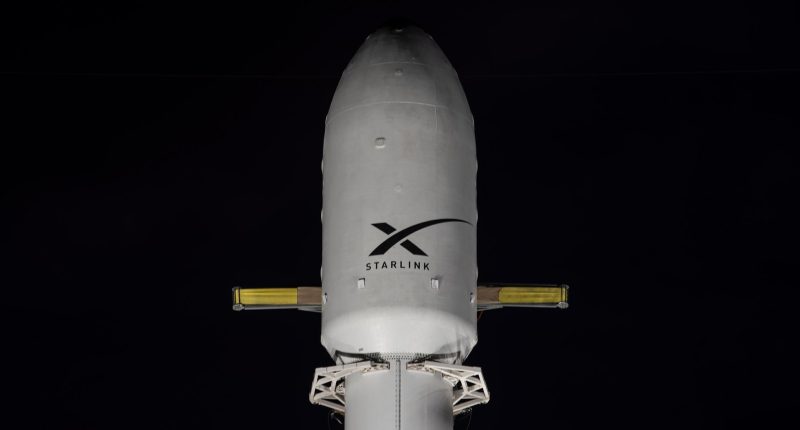Elon Musk’s space-tech company SpaceX, is reportedly set to receive around $2 billion from the US Department of Defense to help develop part of Donald Trump’s new ‘Golden Dome’ missile-defense project. The funding will support the creation of a large satellite network designed to track and intercept missiles, drones, and other airborne threats, reports the Wall Street Journal. The contract is said to be part of a larger defense plan included in a recent government spending package approved by Trump’s administration earlier this year. However, neither SpaceX nor the Pentagon has officially confirmed the deal.
The project would involve building an advanced satellite system (described as an air moving target indicator) made up of as many as 600 satellites working together to detect and monitor threats in real time. Importantly, SpaceX (which already manages the Starlink and Starshield satellite networks) would use its rocket and satellite expertise to create this new defense layer in space.
If confirmed, this would mark one of the largest single defense contracts SpaceX has ever received. The company is also reportedly being considered for other parts of the Golden Dome project, including a secure military communications network and a system for tracking ground-based vehicles.
Notably, Trump’s Golden Dome initiative (first announced in May 2025) aims to build a nationwide missile-defense system capable of protecting the United States from attacks involving missiles, drones, and hypersonic weapons. The plan, estimated at $175 billion over three years, combines space-based sensors, interceptors, and artificial intelligence (AI) technologies. US President Donald Trump has described it as a ‘Star Wars-like’ shield that could make the US nearly invulnerable to foreign threats by the end of the decade.
The development comes at a time when, in June 2025, Elon Musk predicted that his space technology firm, SpaceX, would generate about $15.5 billion in revenue for the year (2025). Musk also stated that the company expects to earn more from its private and commercial space ventures in 2025 than NASA. Notably, in 2024, SpaceX was estimated to have generated between $12 and $13 billion in revenue, up from around $9 billion in 2023.
However, despite all these efforts, SpaceX still faced several high-profile setbacks and controversies in recent months. For example, in March 2025, the company’s Starship rocket exploded shortly after liftoff during a test flight from its Boca Chica launch site in Texas. The incident led to a Federal Aviation Administration (FAA) investigation and temporarily disrupted commercial air traffic in nearby regions due to falling debris. Apart from launch issues, the firm also faced environmental and local opposition. In July 2025, the company came under fire after residents near its Starbase facility in Cameron County (Texas) reported a sudden water supply cutoff linked to SpaceX’s growing operations. Around the same time, the US Air Force suspended a SpaceX rocket cargo project over environmental concerns related to planned test sites in the Pacific.
The Tech Portal is published by Blue Box Media Private Limited. Our investors have no influence over our reporting. Read our full Ownership and Funding Disclosure →






